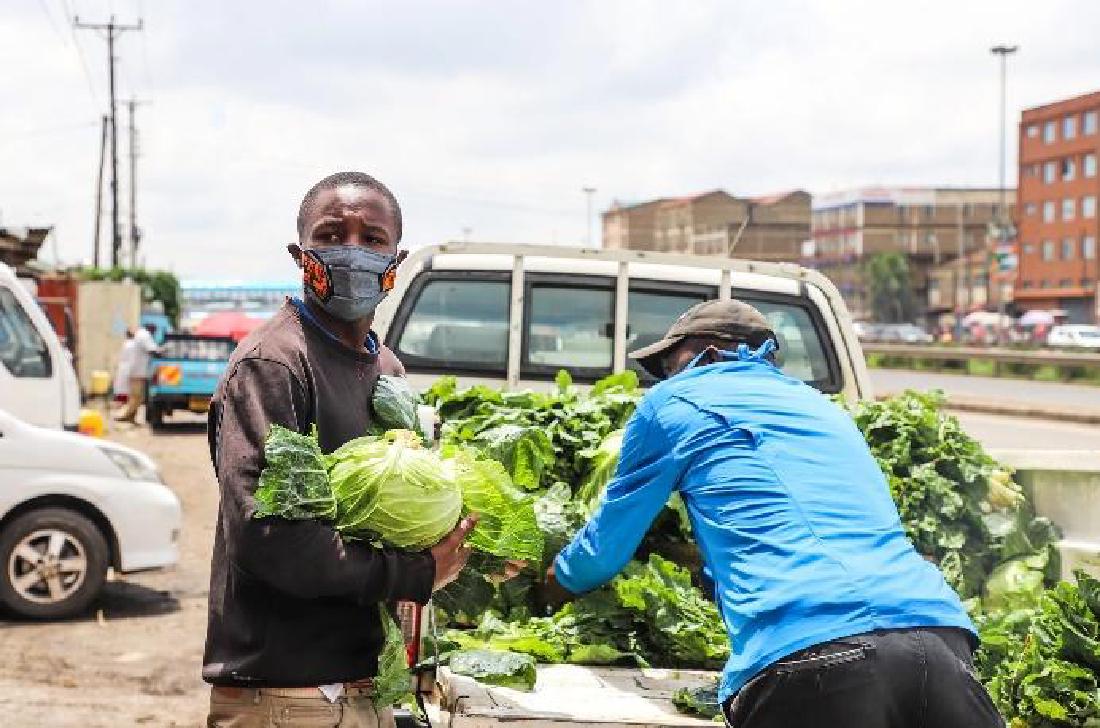It’s with great excitement that we share an update on the Resilient Agriculture Innovations for Nature (RAIN) challenge. In collaboration with the Global Resilience Partnership (GRP), we launched the RAIN Challenge at the COP27 Resilience Hub.
We have identified innovative climate-resilient agricultural initiatives in East Africa and are providing them with seed capital and training to position them for larger investment.
Farm to Feed, Farm to Feed Kenya Limited, Kenya
Farm to Feed addresses food waste by utilizing a digital platform to connect buyers to farmers with surplus produce. Farm to Feed works to improve food security, reduce greenhouse gasses from food waste, and improve smallholder farmer income.
Enhancing Climate Resilience and Women’s Economic Empowerment, MDFA, Uganda
To strengthen the climate resilience of smallholder farmers, the Moyo District Farmers’ Association (MDFA), has developed an app to assess climate risks and enable smallholder farmers to implement nature-based climate adaptive solutions, agricultural extension services, and track farmers’ field data, climate issues and performance.
One Farmer Project, Artificial Intelligence Center of Excellence, Kenya
The AI Centre of Excellence (AICE), in partnership with Adanian Labs and United AI Alliance is collecting real-time climate and environmental data, consolidating it, and using the data for predictive climate change insights to support smallholder farmers and promote climate action. The aim is to mitigate possible losses and boost production amidst a changing climate.
Vermicomposting for Sustainable Production of Organic Fertilizer Rwanda, Rwanda Environment and Cultural Organization, Rwanda
Using vermicomposting, a process that uses earthworms to transform organic waste into compost, this project recycles food waste and produces a sustainable organic fertilizer to enhance soil regeneration and promote resilient agriculture.
Rearing Cottages for Parasitoids, Xylemtech Company Limited, Tanzania
To reduce the use of chemical pesticides, promote sustainable farming and increase yield, Xylemtech is developing beneficial parasitoid production cottages. The parasitoids will be sold to farmers and farmer cooperatives to attack crop pests, thereby reducing the need for pesticides.
System of Rice Intensification (SRI), Nile Interconsults Uganda Ltd, Uganda
Nile Interconsults Uganda is deploying, SRI, a proven alternative rice growing method that enables rice farmers to cope with climate change and actively participate in mitigating greenhouse gas emissions. This method avoids anaerobic conditions and the subsequent emission of methane, reduces freshwater use in rice cultivation, and increases income for local farmers.
Ecorich Solutions, MDFA, Uganda
Ecorich Solutions is developing a food waste decomposer that will only take three days to convert household waste into affordable organic fertilizers, an approach that is 70% cheaper than normal fertilizers and thus more accessible to smallholder farmers. They provide urban households with the ability to generate value from their waste by creating organic fertilizers from waste and giving it to farmers.
Early Crop Pests and Crop Disease Detection Device, Farmer Lifeline Technologies, Kenya
Farmer Lifeline Technology has developed an AI device to detect and predict crop diseases and crop pests using a solar-powered camera that periodically scans and captures images of crops. When a disease or a pest is detected, the farmer is alerted via text message and the app provides recommendations of affordable, carbon-negative and health-friendly fertilizers and farm chemicals that have minimal greenhouse gas emissions.
Roads for Nature-Positive Farming, MetaMeta Limited, Kenya
MetaMeta Limited and the Government of Makueni County are developing Enhancing Climate Resilience Adaptation and Agricultural Production (ECRAAP), a project that aims to integrate sustainable land management strategies, including road run-off harvesting, agroforestry, climate-smart farming, and bio-gulley control, to improve agricultural production and advance climate resilience.
Smart Beehives in Agroforestry, Germark Holdings Limited, Tanzania
To improve food security and food production, Germark holdings will lease smart beehives, equipped with sensors, to community farmers involved in agroforestry projects. The beehives will be used to gather data to determine environmental disturbances that may prevent pollination and will be shared with farmers to make informed decisions.
